PRESERVING A MILITARY LEGACY FOR FUTURE GENERATIONS
The following Reflections represents Maj Robert Hayden’s legacy of his military service from 1964 to 1985. If you are a Veteran, consider preserving a record of your own military service, including your memories and photographs, on Togetherweserved.com (TWS), the leading archive of living military history. The following Service Reflections is an easy-to-complete self-interview, located on your TWS Military Service Page, which enables you to remember key people and events from your military service and the impact they made on your life. Start recording your own Military Memories HERE.
Please describe who or what influenced your decision to join the Air Force.
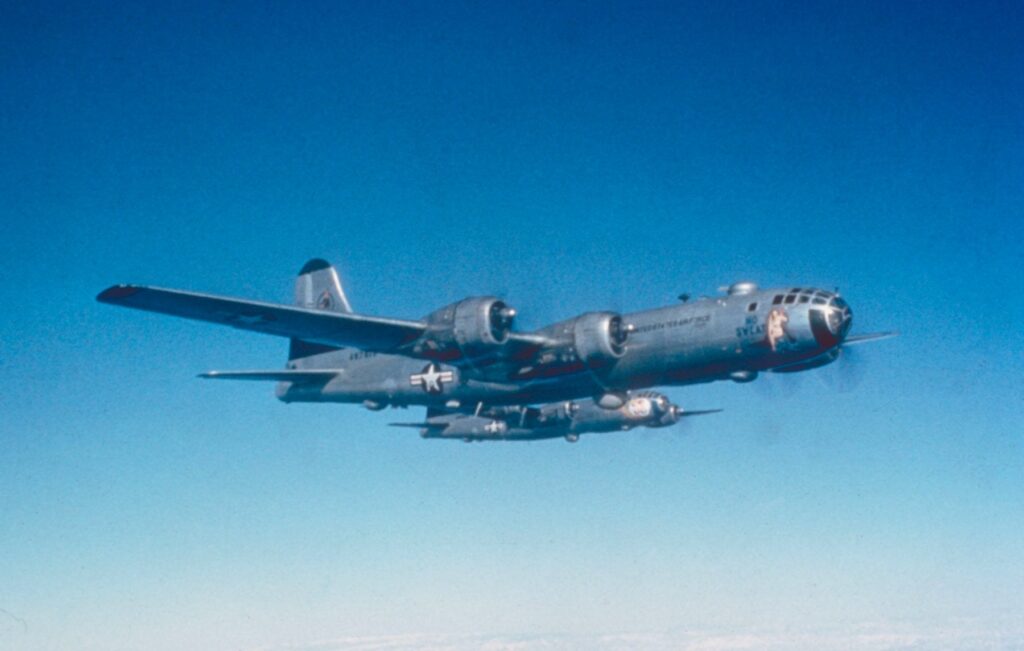
Two different reasons or experiences. While I was a small lad, we lived about 90 miles from Wichita, where my grandmother and great-grandmother lived. Immediately after WWII, when I was about four years old, we would drive up to visit them and would drive by the line after line of B-29‘s, huge and shiny, that the Boeing company had built but not delivered to the military for the war. I still remember thinking how neat it would be to get to fly one of those airplanes.
To further that desire, the follow-on B-47′s were built in Wichita, and our hometown in Oklahoma was one of the turn points for the acceptance test flights of those beautiful aircraft. When you are about 7 or 8 years old and watch them at about a thousand feet flying overhead, that would again make you wish that you could fly them. (I learned later that the 47, while beautiful to look at, was dangerous to fly, but that’s a different matter). But to have a career in which you get to do what you hoped to do when four years old, and even get paid for it, makes you very lucky.
Whether you were in the service for several years or as a career, please describe the direction or path you took. What was your reason for leaving?

When I was coming out of Oklahoma State University, the draft was still active, so there was no question as to whether or not you would go into some branch of the service. I knew nothing about the military but the Air Force offered a 90-day program to become an officer, which, if nothing else, the pay was better. The Officer’s training school at Medina Base near Lackland AFB was great. Before concluding that I was crazy to write that, it might be worth pointing out that for my senior year of high school and four years of college, I was the sign-on and sign-off guy for the local radio stations.
Which meant, for a 6 1/2 or 7-day workweek, depending on the semester, you had to get up at 5 am to sign on the station. Go to school during the day. Back out to the station from 5 to 10, sign off, study enough to hopefully pass a test the next day. Get maybe 4 hrs of sleep and then do it all over again. To get a whole 6 hours, sometimes even 7 hrs of sleep a night while learning about the Air Force was a luxury I hadn’t had four years. So in February of 1965, I was a new 2nd lieutenant. Our particular class graduated one day early – it was just a matter of finishing on a weekday – but we were henceforth able to refer to ourselves as 89-day wonders.

I was assigned to an Air Base, now closed, in the upper peninsula of Michigan, so I had quite a culture shock with my first winter having 254″ of snow. I wore glasses at that time and didn’t want to become a navigator, so I went in as an air traffic officer. The formal training, a 4-month course at Keesler AFB in Mississippi, was delayed due to funding. Before attending the school, I was assigned to MSgt Lafitte, who gave me a test each Friday, the results of which were immediately given to my Sq Commander, so it was an excellent incentive to get into the manuals and regulations for being a controller.
I also was given considerable “unofficial” time working traffic, even though that was probably not entirely legit. The pre-training made the formal school a breeze, and I was the honor graduate. Our class had three captain navigators who were cross-training into Air Traffic and, and on day one, said they would carry the new lieutenants to see that we made it through the school. They were so sure of their abilities that they each bet $50 that they would be honor graduates. It was kind of fun receiving the $150 from them on graduation day.
I enjoyed being a controller very much. Although once I was fully rated, we were primarily a training facility for getting enlisted troops trained and on their way to SEA assignments, so I didn’t get to work as much traffic as I had hoped to do. As such, the job became more shuffling papers instead of working airplanes.
With the help of the base optometrist, I was able to get rid of my glasses (without cheating) and put in for pilot training after my first three years as a controller. From that time on, I never had to work for a living. I just got to play with expensive machines and got paid a salary to do it.
Primarily flew various versions of the C-130, including three years assigned to Viet Nam flying regular cargo, occasional airdrops of ammunition, passenger runs, and then flying and dropping the 15,000 lb bombs that we used to make instant helicopter and howitzer bases for the Army.
I stayed in for slightly over 20 years – very much enjoying all but one year of that time. Perhaps a primary reason being I had great bosses to work for and some outstanding folks, Officer and Enlisted, to fly with. Having been both a pilot and air traffic controller, I had a three-year assignment as an ATC evaluation pilot for the Air Force. I also had a year at the FAA en route center at Kansas City – it was called Education with Industry – and five years assigned to the FAA headquarters in Washington and flying the FAA’s business jets from Washington National Airport. So for six of my twenty years, I wore civilian clothes to work each day. Some of those FAA-er’s are still friends today.
Since I sought to have only flying jobs and not staff jobs, there was no way I would progress past major in rank, so it was time to move on. As it happened, the airlines were hiring, so I went immediately from one job to the other.
If you participated in any military operations, including combat, humanitarian and peacekeeping operations, please describe those which made a lasting impact on you and, if life-changing, in what way?
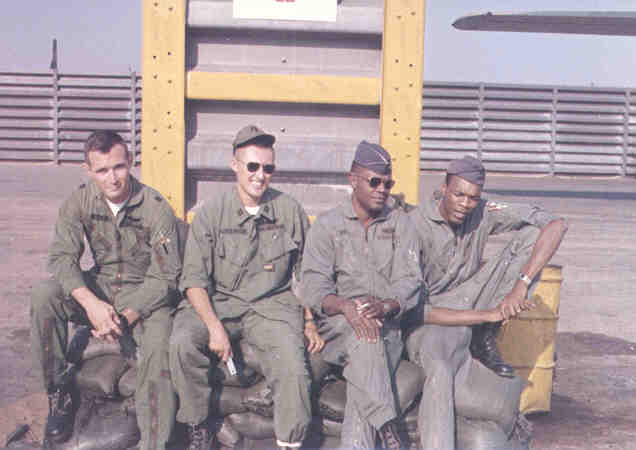
The RVN flying gave a person the time to see people at their very best and the opposite. Many were wanting to do their jobs and instruct others in what they had learned, and others wanting to fill a “combat” square and quickly move on to their version of better things to do.
As a new co-pilot, the normal progression is to fly with aircraft commanders that watch you doing normal day and night landings. Usually, the short field landings, also called assault landings, are typically made by the aircraft commander. Until he feels you are ready to begin making them during the daytime when visual cues are more prevalent, allowing you to make necessary changes to the flight path, power setting, etc.
Unfortunately, I had to learn how to make night, heavyweight, short field landings all at the same time because my aircraft commander was too drunk to pilot the airplane. It was a different era, and we covered for the ones who couldn’t do their jobs. So I had four-night landings at Dong Ha, a Marine base just south of the DMZ, each time bringing in about 30,000 lbs. of food and ammunition for the division stationed there. I’m not sure if the other crew members, navigator, flight engineer, and loadmaster, were fearless or just too scared to say anything, but they all went along with my flying.
Realistically I don’t know if the word on my flying that night got out, but my monthly flying time was suddenly increased towards getting the minimum thousand hours of flight time to upgrade to the left seat. Once I upgraded to aircraft commander it was five months and 500 hours of flying time later to become an instructor pilot, I was assigned to a bomb crew. We were doing either bomb drops or air evacuation flights of wounded to surgery centers and primarily kept on-call for daytime flying and instructing.
Mostly with the Stars and Stripes and Armed Forced Radio being our only source of news, we didn’t know how much resentment to the war was being built up at home.
The one you never forget is coming back to the States, certainly not feeling like a hero but knowing you’d done your job as assigned for three years. Walking in uniform through the San Francisco airport, where a young woman, gorgeous, typical California blond, came walking up to me and spit in my face.
Did you encounter any situation during your military service when you believed there was a possibility you might not survive? If so, please describe what happened and what was the outcome.
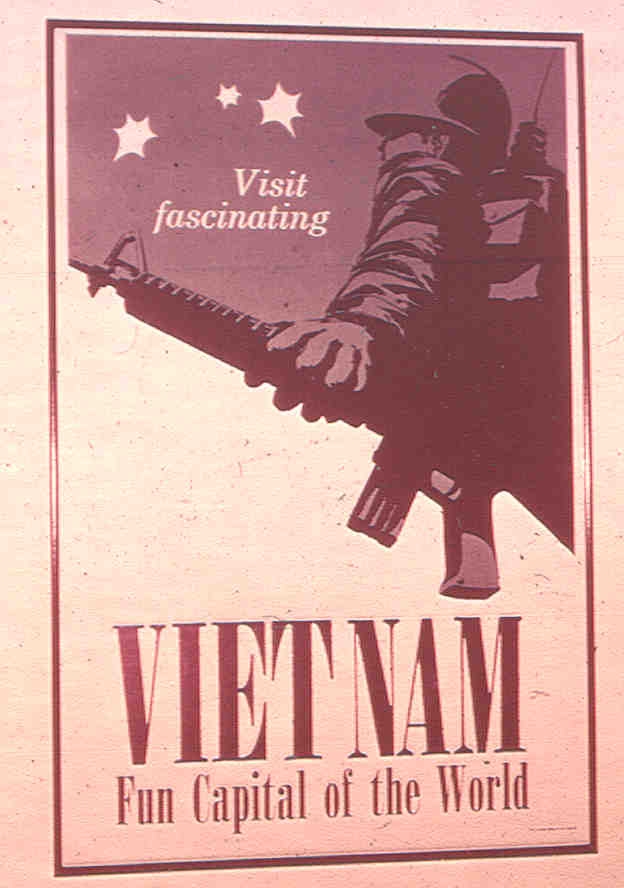
Twice.
When a colonel comes up and says, “Capt Hayden, here’s where you’ll go today,” then it is normal operations. When a colonel comes up and says “Bob” to begin his sentence, it means he’s looked at your record and found out your first name, and it’s not going to be good. If he says, “I want you to understand I’m not giving you a direct order,” it means yes, he is, and it’s going to be an even worse day.
So we followed our orders. We took off nearing sundown, and we flew to an airfield in the Parrot’s Beak area next to the Viet Nam border, landing after dark with some bean bag flares for lighting. We kept engines running, turned the airplane around, opened the back of the aircraft, and waited. A half-hour later, four Navy Seals came running to the aircraft, dived aboard, and said get the hell out. We did but not until receiving a bunch of machine-gun fire and holes in the plane from the North Vietnamese troops that were in hot pursuit.
When we landed late that night back at Cam Rahn Bay, the same Colonel met us and told us the whole thing was highly classified. And not to talk about it to anyone, not to list any personnel or flight time in any log and not to write up the holes in the airplane but to let the maintenance guys discover that the next morning. That time the Colonel didn’t even bother to say it wasn’t a direct order.
The other time was a routine passenger flight except that an engine let go, parts exploded into the adjoining engine with the accompanying fire. Hence, we landed on fire with two engines out and 64 passengers on board. We got everyone off the airplane before it burnt up. All in all, a pretty good though eventful day until the fire trucks arrived, heavyweight, fully loaded with fire suppression stuff, couldn’t get stopped, and ran over two of my Vietnamese passengers, killing them both.
Of all your duty stations or assignments, which one do you have fondest memories of and why? Which was your least favorite?

Best
After Viet Nam, I was assigned as an air traffic evaluation pilot out of Richards-Gebaur (Dickey Goober) AFB. You had to be both a certified pilot and a certified air traffic controller – not too many of us. We had what amounted to a flying club checking all the air traffic controllers at all AF Bases, all major air commands, from Thule, Greenland, to the Azores, to Panama, to Shemya, Alaska, and all Stateside bases in between.
The scheduler would give you a list of ten bases, and he would say to us, “You leave Monday morning, try to be back by Thursday evening, and call if the airplane breaks.” So we could go in any order to route to the bases, do our evaluations, and file the paperwork when we got back. When you could “controller speak” as well as “pilot speak,” I think we were able to help the controllers do a better job when we pointed out what they needed to improve on.
I realize no one enjoys being inspected, but I believe they understood we were trying to improve their job performance rather than see how many write-ups we could get on them. One of our required maneuvers was to get a GCA from the ground controllers and, about a thousand feet above the ground, to purposely dive down below the glide path to see if the controllers could give the correct go-around instructions. Not too typical for other airplane drivers and would occasionally result in phone calls to the base to see if a plane had crashed short of the runway.
Worst
I had a year as an air traffic advisor and C-130 evaluation pilot in Iran, about a year before the Shah was overthrown. There was some satisfaction helping the Iranians relieve some of their dangerous pilots – despite who their influential fathers happened to be.
However, our team chief was the one supervisor of my career who exhibited total upward loyalty. He took outstanding care of having team members being tour hosts and shopping guides for visiting colonels and general officers and their wives, instead of having team members working as advisors for the Iranians. And zero downward loyalty to our 32 team members – he turned three of them from good troops into alcoholics. Very sad.
From your entire military service, describe any memories you still reflect back on to this day.
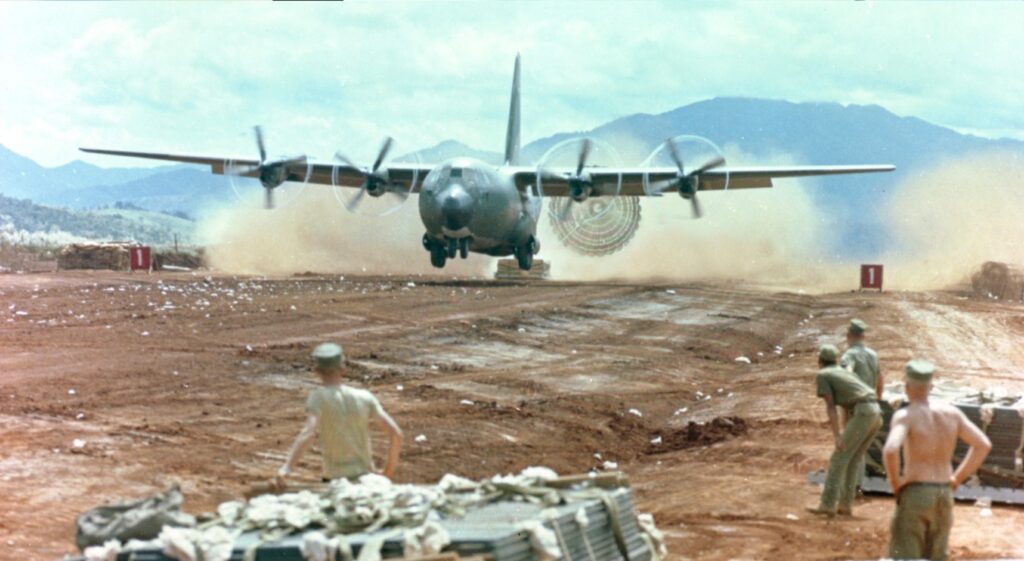
Anyone who serves in a combat zone is changed forever. I was assigned to a wing in the Philippines and on a three-year assignment. I spent two years and three days of that in Viet Nam. A bit over 1300 hours labeled as combat flying time. Too many memories and many not pleasant. The flying itself was a challenge, and the way for a new pilot to learn his trade and my supervisors were all exceptional. But we hauled all too many wounded and dead to say it was enjoyable.
The year in Iran, I flunked 55 co-pilots in a row on their yearly check rides. Some were poor, and some were horrible. The two wing commanders were sending co-pilots TDY to my base for me to give them the check ride and flunk them if needed. The Iranian check pilots could not flunk a son of an influential friend of the Shah, but I could. Check ride #56 was a fellow who was as good a pilot as anyone. Don’t know whose bad side he had gotten on to be sent to me for evaluation. But the next day, after my conversation with the general that was his wing commander, he was an aircraft commander.
Also, that same year, I led a 71 ship formation of C-130’s for an airshow for the Shah. Quite an experience even though I’m sure they assigned the American as flight lead as a built-in excuse in case anything went wrong.
Stateside assignments in Michigan, Kansas City, Washington DC, and Little Rock were great, and also had great bosses. Getting to land at least once at every active Air Force Base in the US is also somewhat unique as most pilots are assigned to one major air command and only go to their bases.
What professional achievements are you most proud of from your military career?

Primarily working as an instructor to pass along the experience you pick up over the years. To get your students to understand that every approach and landing they make in their careers have to be the very best they can do, and if not, then you should be ashamed of the job you did. Single pilot or carrying several hundred people, they still deserve your talent and best efforts every time.
Of all the medals, awards, formal presentations and qualification badges you received, or other memorabilia, which one is the most meaningful to you and why?
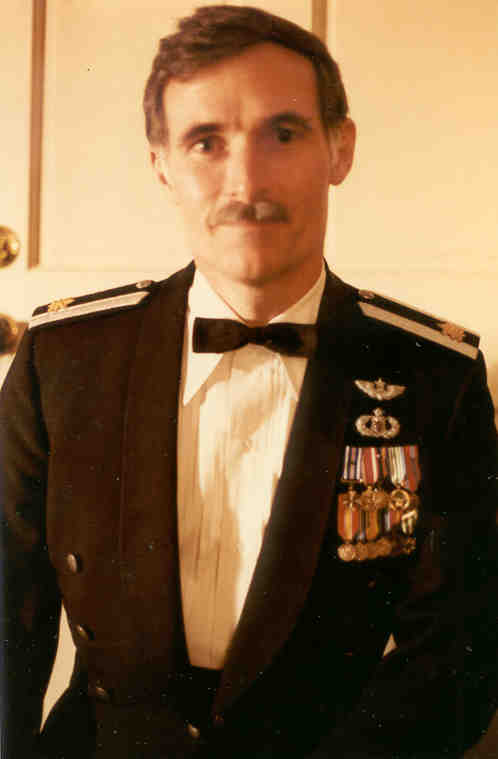
Probably the two DFC’s. (Distinguished Flying Cross)
One was for flying 218 Viet Namese out of a village expecting to be overrun within the hour.
The other was for an operation that, as far as I know, is still classified at least as confidential.
As a side note as to how goofed up things can get to be in the military, I was told I had been put in for a silver star for a different classified operation. At any rate, the sergeant admin clerk who worked in the awards and decorations section at our headquarters, at that time didn’t have a secret security clearance. So, according to my boss, since the clerk wasn’t authorized to read the classified recommendations, it was returned, stamped “disapproved.”
Which individual(s) from your time in the military stand out as having the most positive impact on you and why?
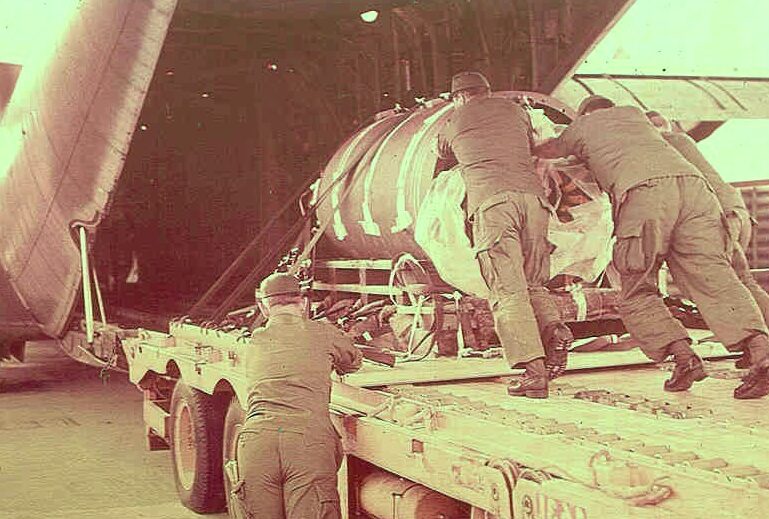
My first Commander, while I was a lieutenant, had been a bombardier in WWII. His advice to all was when things get really “interesting,” another euphemism for sensory overload, or for terrifying, just go ahead and do your job. Get scared later.
My squadron commanders of the flying squadrons, where I was assigned, were just great. I was never second-guessed on any decision I made.
List the names of old friends you served with, at which locations, and recount what you remember most about them. Indicate those you are already in touch with and those you would like to make contact with.
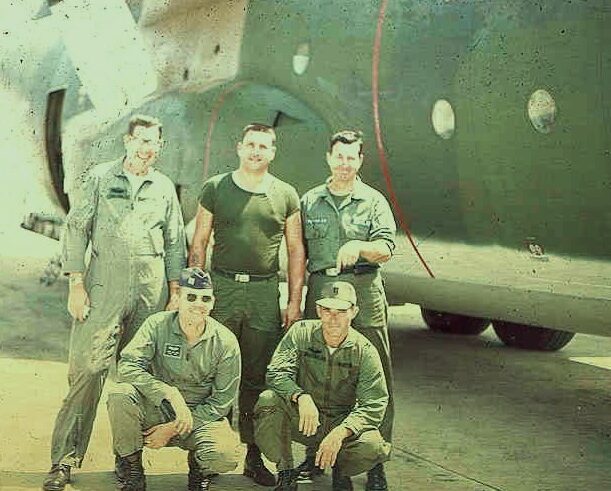
My most enduring friendships are with the fellows I went through Undergraduate Pilot Training (UPT) with at Vance AFB in Oklahoma. While it took us 20 years to start having formal reunions, we have more than made up for it since. It was a very intense year with weekly check rides. Unfortunately, pilots developing a training problem could be eliminated, reassigned to another career field, and gone from the base in as little as three days. The mutually experienced stress and feeling of accomplishment create a lifelong bond.
We graduated with about half of those who started with us. That creates a bond that still applies to today. As we age, a few are no longer with us, both due to ill-health or flying accidents, but it is always great to get together, tell a few war stories, and reflect on the past together. Some of us also vacation together, and our wives and we have a nice time.
Our reunion last year, for our 50-year reunion, included going to Vance AFB and buying lunch for the pilot class that was graduating two days later. As it’s now “peacetime,” the class was about half the size of ours and included three lady pilots. We were super impressed with the character, enthusiasm, and quality of these young people who will be future leaders in our Air Force.
As a side note, the T-38‘s they flew for their training are the same ones we flew in 1968. Newer instrumentation but the same airframes, now limited to subsonic only. Hopefully, they, meaning the planes, not the pilots, will be retired before too long in the future.
Can you recount a particular incident from your service, which may or may not have been funny at the time, but still makes you laugh?
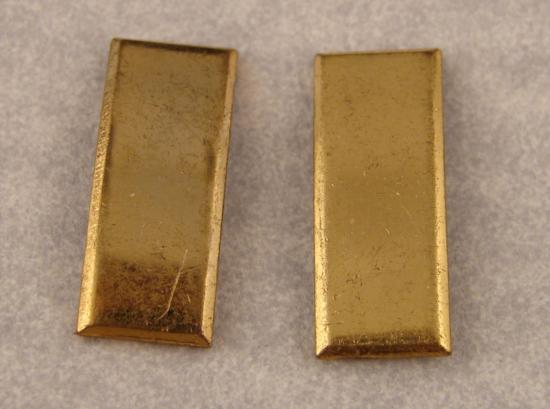
While I was a new 2nd Lieutenant, you made the first lieutenant promotion automatically with 18 months of commissioned service.
My boss, Maj. (later Lt/Col.) Miller used to tell his new lieutenants that the only way you didn’t make First Lieutenant was to write a hot check or be caught in bed with your boss’s wife.
Our small air traffic squadron had a personnel shop that was several states away. They overlooked when I had 18 months and, so, knowing that there is no rank among lieutenants, and knowing I’d get the small pay increase eventually, didn’t mention it to anyone.
A couple of weeks later, the personnel people notified my boss by a message of their error and sent my backdated promotion orders.
My boss called an officer’s call (all five of us), stood me at attention, and said: “I know you haven’t written a hot check, so what have you been doing with my wife?” It was a good “gotcha” that I still laugh about.
What profession did you follow after your military service, and what are you doing now? If you are currently serving, what is your present occupational specialty?
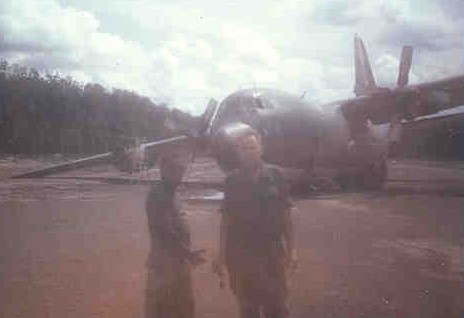
My first week of terminal military leave was my first week of training with Continental Airlines. I flew for them until the day I turned 60, which at the time meant mandatory retirement (by the direction of Congress). Ended up being 200 hours short of 20,000 total flying hours.
The flying itself for the airline was much the same as the military, of hauling people from A to B, but without having to go to work 4 hours before takeoff time. Also, the maintenance was better as we had experienced; licensed mechanics instead of young airmen still learning their trade. As a quick comparison, I had 144 engine shutdowns for my military flying from all causes, maintenance, or bad guys. With Continental Airlines, I had zero shutdowns.
In addition to flying the line, I also spent time working as an instructor teaching in the simulators and also teaching better communication techniques classes for the pilots. For several years after age 60, I was called back to teach orientation classes for newly hired pilots.
Presently, outside of the days of Social Distancing, I’m in three local choruses, I am the president of a nationwide antique collectors group, and probably spend way too much time in front of a computer with emails and forwarding jokes received from friends. Some of those are friends from the military and some dating back to grade school from my small hometown in Oklahoma.
What military associations are you a member of, if any? What specific benefits do you derive from your memberships?
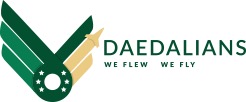
I’ve been a member of Daedalians since the mid-’80s. Here in Austin, where I live now, it is primarily retired aviators as the Air Force Base in Austin has closed. Fun to get together every other month.
In what ways has serving in the military influenced the way you have approached your life and your career? What do you miss most about your time in the service?
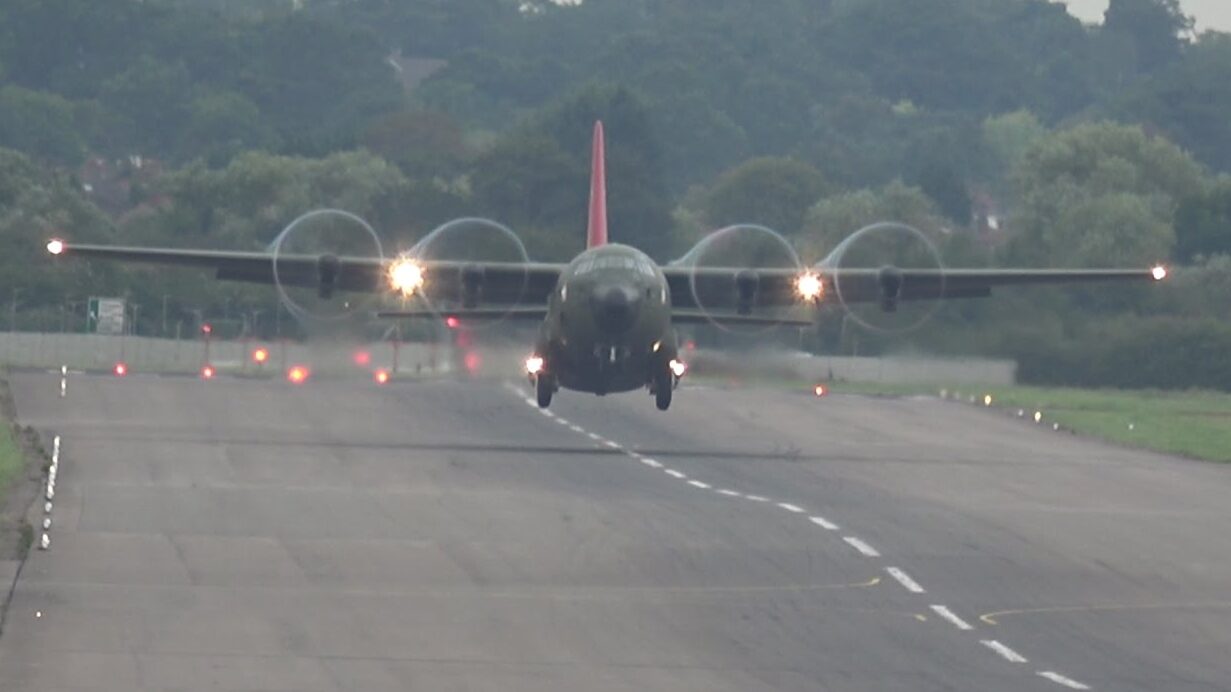
Mostly I realize that Uncle Sam was willing to take a guy and train him to fly his airplanes. Even in the ’60s, it was understood that to take a trainee through Undergraduate Pilot Training (UPT) to a set of wings and then to check out in a real airplane to do a needed job was going to take at least a half-million dollars. I like to think that the government got a good return on investment by my staying in for a career.
My last four years in the service had me as an instructor pilot in the C-130 school in Little Rock. I was senior enough that I could request being the instructor for brand new pilots who had just earned their wings – primarily Air Force lieutenants – but some from the Coast Guard and Marines – coming out of UPT. I like to think that “my” 48 pilots are out there flying with my “thumbprint” on them. A few came back through the school to upgrade to aircraft commander and requested me as their instructor for that course. And, just before I retired, one came back for instructor checkout and also again asked for me as his instructor.
I also very much appreciate that they qualified me for my follow-on career with the airline. Fellows now pursuing an airline career via the civilian path usually arrive with a huge debt load to repay for their training.
What I miss, strangely enough, is the military money system. As a civilian, it is almost verboten to discuss money, salaries, etc. In the military, you could figure out to the penny how much a co-worker made if you wished. There was absolutely no stigma to say, “no, we can’t afford to go out for supper this week – how about next week after payday.” It saved a great deal of trying to create false images for friends, acquaintances, and co-workers that deal with the civilian world.
Based on your own experiences, what advice would you give to those who have recently joined the Air Force?

We all live in an age where the only constant to be experienced is that of change.
As such, take advantage of all the available training regardless of which career field you choose. The Air Force is competitive by its nature, and it is not sucking up to your supervisor to specifically ask what you can do to excel as an individual in your unit of assignment. Find out what is expected and then try to meet or exceed those expectations. What you think and what your boss thinks is excellent job performance may differ, so ask.
Off duty, education is usually available and should be pursued.
You aren’t an old guy, if you are retiring from the Air Force in your early forties and joining the civilian world – you will have at least one more career to encounter and excel in. Try to be prepared for that happening.
In what ways has togetherweserved.com helped you remember your military service and the friends you served with.
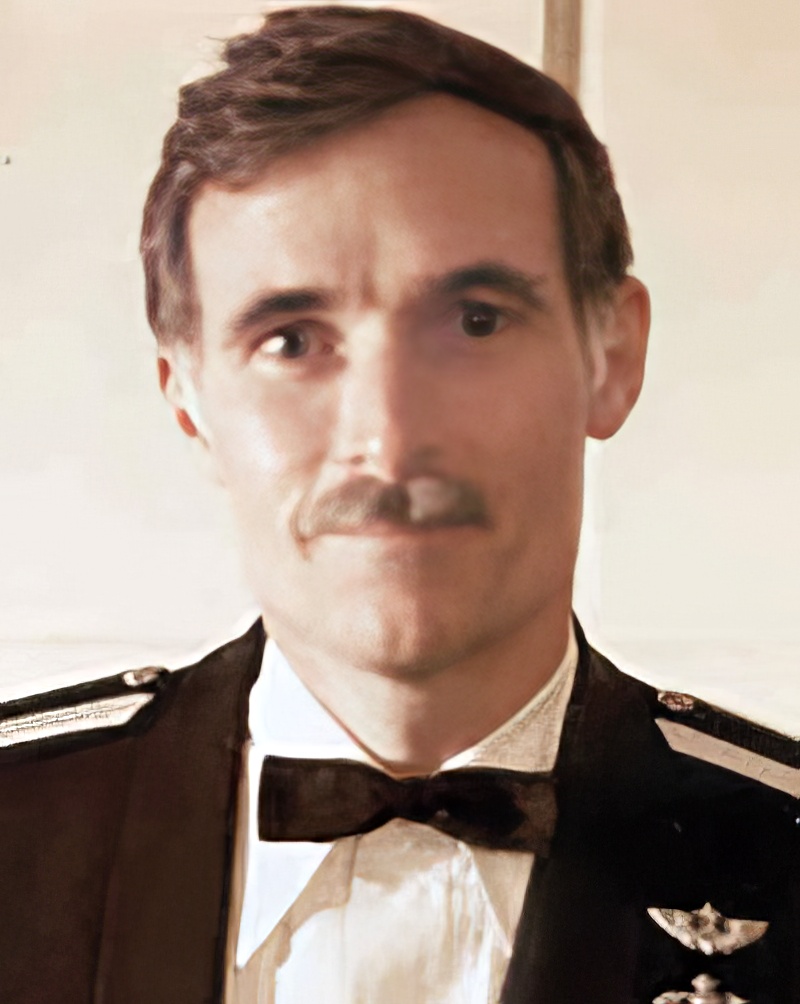
Until joining, I did little reflecting on my service days except when in reunions with my fellow UPT graduates. It was a good and growing 20 years.
PRESERVE YOUR OWN SERVICE MEMORIES!
Boot Camp, Units, Combat Operations
Join Togetherweserved.com to Create a Legacy of Your Service
U.S. Marine Corps, U.S. Navy, U.S. Air Force, U.S. Army, U.S. Coast Guard

I was in the Squadron at Richards Gebauer AFB MO and delighted to know he picked that as his best duty/assignment. We exchange e-mail “intelligence” almost daily.
Major Bob Hayden,
I’ve been thinking about you lately because of an event that took place 55 years ago today at Clark Air Force base. Our chance meeting in the air terminal there, and how you “rescued” me during my transit from Viet Nam back to the States.
Hope we can get in touch again.
Brothers in the Bond,
Beta Gamma 268